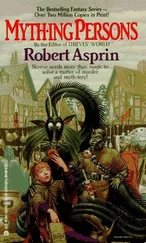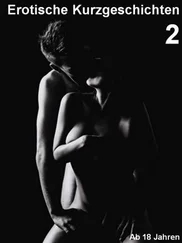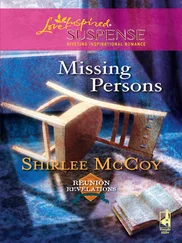Chaim took a short sip from his glass. The car was borrowed, but it was true, Pavel had plans to make a purchase of something used; it would give them more freedom than bicycles.
And we do not have British papers, continued Kuba. It makes a difference to have them. Hinda says you have both.
Pavel smiled. Should you believe everything Hinda says? The three men laughed again.
Young to be a partner in such a business, eh? said Marek, looking at Chaim. His broad cheeks had reddened with the schnapps.
Not so young, said Chaim.
Smart, said Pavel. He already teaches in the Belsen school. Everyone talks about him.
It’s not exactly teaching, Chaim interjected. I help with-
In any case, said Kuba, I want to marry your sister. I want to make something more than we make here. There is nothing for us here, business or no business. Nothing.
Pavel nodded. This Kuba thought ahead. There is nothing here, he agreed.
We went back to Kielce together, said Marek. We thought-I wanted to see my parents’ bakery, I wanted some message-I thought in the Jewish community center-
You can imagine, said Kuba. You can imagine.
You cannot imagine, said Marek, his voice suddenly louder. You cannot imagine! After everything-Kuba does not know-I can see where you were, and he was not where we were, my friend-he does not know, but after everything, to come back and to have them massacring us again! We ran to the American zone so fast we left what little we had in our houses. Worse than before! I hate Poles more than Germans. I hate them more! Marek was shouting, his thin brown hair flapping over his forehead. I hate them more! At least here we have the chance to see the Germans hungry and defeated! There they live on our property and grow fat and they are delighted, overjoyed that we are gone! It is heaven for them. A little heaven.
Another silence. Kuba patted his friend’s shoulder. I just wanted Pavel to know that I will leave here at the first opportunity, the first chance.
But until then, sighed Marek.
Until then, continued Kuba, we would like to invite you into our business. You have connections, we have connections. We have crossed borders without papers before.
Pavel looked at them, thin Marek with his eyes almost running with tears, small Kuba with his blond, sunny face. They did not have papers for the British zone. But Pavel did. He had everything. Perhaps he could help them. He had money, he had stones. Not as good as identity papers, but almost as good.
I participate in the Jewish Committee of the British zone, Pavel said. I will see what can be done.
IN THE ROUNDHOUSE, THE speeches of the leaders and the mutterings of their followers became more and more desperate and furious. Yidl Sheinbaum, accepting his reelection to the head of the committee, cried out about the cruelties of the British foreign minister and the hopelessness of the American Congress. We have crossed the Red Sea! he shouted. But still we are in the desert! Should we wait forty years?
It was true, Pavel thought, clapping angrily with the rest. They had been slaves in Egypt and still had not found their freedom. The outside world busied itself with more important things than the suffering of the Jewish remnants. They were all on the lists to emigrate with the Joint and the International Red Cross and HIAS; they all hoped for America, of course, and they all came to the demonstrations for the British to open Palestine, though the life when they got there! They had heard the hunger was worse than in Germany. A few refugees managed to have relatives sponsor them to emigrate outside the quotas, and they left at the first chance of sea passage. No, not even the most powerful people in the world wanted to give them a place to live in peace, to seek home, not just refuge.
Still, Pavel had wanted an American for the wedding ceremony of his sister. He had faith in the Americans. He brought in his future brother-in-law and his friend to stay in his house a few days, and organized for them papers-legitimate ones!-and new ration cards. In gratitude, Marek offered to make arrangements-he had contacts. A lady friend knew some of the chaplains in the American zone in Bremen. Pavel did not want to ask too many questions. What a surprise for his sister it would be, a symbol of the new world to bring her into marriage. And as for entertainment, Chaim seemed to know a teacher connected with a group of musicians, hungry people who would be happy to travel out to the house for a reasonable fee.
FELA DID NOT LOVE to cook. She loved to bake. Three sponge cakes and a platterful of cookies had been ready since early in the morning, and there was nothing for her to do but boil the cabbage for the chopped meat. Pavel had expressed a wish for stuffed cabbage, but she was doubtful about the quality of the meats he had managed to find. The strong heat interrupted her concentration. Truth be told, she thought it a waste to cook a meat dish for the guests. She did not want to postpone any longer, but she thought that instead of beginning the cabbage she could perhaps work on to a small rack of turnovers with the basket of apples Chaim had brought home the night before. To keep the meal kosher, she could substitute a bit of oil for the butter in the pastry. Or should she just forgo the meat altogether? There was not so much that one could be sure every guest would have enough. Would it not be better to avoid the awkwardness and shame, to present the guests instead with the products of the flour of which they had plenty? No meat at all! It would be easy to sell it again before it went bad. Turnovers, cheese puffs, even another sponge cake, these would be plentiful, and would keep if for some reason the guests did not finish.
Sweating a bit as she sliced the apples, Fela heard the door open and close, Pavel’s nervous chatter, Chaim’s laugh, the voice that quavered between boyhood and adulthood. A stream of humid summer air pushed through the kitchen, mixing with the odor of warm cake. Kuba was not to arrive for another two hours, and the guests would be even later. There was time.
She had prepared for Hinda a little area in Chaim’s bedroom to arrange her hair and to wash, with a little soap and cream and tweezers, all from the cosmetology class she took in the camp. Fela would dress in her own room. They did not feel a warmth toward each other. Hinda was still a girl. A bitter girl, but a girl. She had never been with a man at all, Fela surmised, not even Kuba. No doubt Hinda disapproved of the morals in the house, but Fela thought she could detect in Hinda’s manner not just disdain but awe. Hinda’s body had suffered. Hinda had experienced what all of them had experienced and more, the emptying of the mind of any thought unrelated to physical survival, the obsession, the mania of hunger and cold-and no doubt beatings, perhaps even tortures. But Hinda did not have what Fela had, a memory inside the body, a hidden cabinet of womanhood. And there was no one for Hinda to ask, to consult, no one with whom she could worry and laugh, as she might have with a sister, or a mother, even a girlfriend from school. Yes, thought Fela. Inside that coldness, Hinda felt awe. She resented Fela the way a child would resent an adored brother’s blooming new wife, and Fela was acting, after all, the part of Pavel’s wife.
More than acting. Fela felt that she was not performing a lie but living another life, a life next to her old one, the life of a twin. Sometimes she thought Pavel could see the twin next to her-in the evenings, when they smoked, or at night, when he touched the belly roughened by childbirth. But if he saw, he chose to ignore the twin. She did not ask him questions, and he did not ask her. She knew he assumed she had been married legitimately, by a rabbi, and she did not discourage his assumption. It seemed to her she had not been his first love, either. He too had a twin. And the twins watched them, each night, each morning, as they drew aside the curtains in their wallpapered bedroom or as they wrapped their heads in scarves before riding to their English class in the camp. Her mouth and face and hands felt new to her. She occasionally felt a flash of unsureness, as if the body working at eating and lovemaking was not completely hers.
Читать дальше











